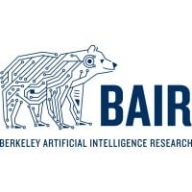

Find out what your peers are saying about Microsoft, Google, Hugging Face and others in AI Development Platforms.

Caffe is a deep learning framework made with expression, speed, and modularity in mind. It is developed by Berkeley AI Research (BAIR) and by community contributors.
We've built this course as an introduction to deep learning. Deep learning is a field of machine learning utilizing massive neural networks, massive datasets, and accelerated computing on GPUs. Many of the advancements we've seen in AI recently are due to the power of deep learning. This revolution is impacting a wide range of industries already with applications such as personal voice assistants, medical imaging, automated vehicles, video game AI, and more.
In this course, we'll be covering the concepts behind deep learning and how to build deep learning models using PyTorch. We've included a lot of hands-on exercises so by the end of the course, you'll be defining and training your own state-of-the-art deep learning models.
We monitor all AI Development Platforms reviews to prevent fraudulent reviews and keep review quality high. We do not post reviews by company employees or direct competitors. We validate each review for authenticity via cross-reference with LinkedIn, and personal follow-up with the reviewer when necessary.